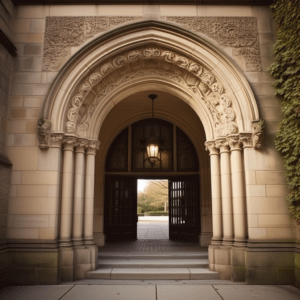If you have ever been interested in obtaining a higher education, then you know first-hand how expensive it can be to get that degree. Many prospective students fund their degrees by obtaining a federal student loan.
Unfortunately, for every few hopeful students seeking out a valid loan, there is at least one nefarious actor seeking to commit federal student loan fraud. Student loan fraud costs millions of dollars each year, contributes to rising tuition prices, and further perpetuates the problem surrounding the student loan debt bubble.
If you witnessed or have information about ongoing federal student loan fraud, it is in your best interests to report the wrongdoing through a whistleblower lawsuit. Doing so will not only secure justice, but could also provide a financial reward for you. Learn more about how the rise of federal student loan fraud and how the qui tam attorneys here at Tycko & Zavareei LLP can help you blow the whistle.
What is Student Aid Fraud?

These loans are also a prime target for individuals seeking to abuse the system and obtain funds for other purposes. Federal student loan fraud happens when a person, organization, or group falsifies information on a student loan application in order to illicitly obtain funds through the U.S. Department of Education.
Individuals may target federal student loans to abuse because these loans are often low-interest and have a long grace period. On the other hand, an organization may target federal student loans to obtain funding for their school or group.
Can a Higher Education School Commit Fraud?
Yes, a higher education facility or school can commit federal student loan fraud. Examples of fraudulent behavior by colleges or other academic groups include:
- Misrepresenting graduation rates to prospective students
- Paying kickbacks to student recruiters to solicit their schools
- Paying bribes to obtain a grant fund
- Embezzling public funds for educational spending
- Overcharging for public education programs
- Deceptively reporting job placement rates for graduates of their programs
- Misrepresenting their true standards of educational quality
- Obtaining federal student loans for students who are actually ineligible by lying about the student’s academic performance
- Using improper or coercive student recruitment techniques
- Lying on a grant application
Recent Examples of Student Aid Fraud

- 3 women indicted in fraud scheme at Fullerton College (March 2023)
- Baton Rouge suspect stole $1.8M in student loan funds (Jan 2023)
- Texas Southern University employee fraudulently obtained $600,000 (Oct 2022)
- Former Texas college financial aid director indicted for fraud (Dec 2022)
Federal Student Aid Fraud Involving Bots
According to recent reports, one new way that federal student loan fraud is being perpetuated is through the use of online bots. These bots pretend to be real students, sign up for courses, and then seek out financial aid for enrollment in these classes. Teachers are usually both confused and stunned when they show up to teach class and only discover a handful of the students who enrolled are actually present.
Student Aid Fraud is on the Rise: The Senate Investigates
Because student aid fraud impacts every taxpayer, the Senate has opened several investigations into the situation. Even as far back as 1991, federal investigations revealed widespread federal student loan fraud. Since that time, the fraud and abuse have only increased. In a 2022 investigation by the U.S. Senate, investigators said the student loan program is currently “plagued by fraud.”
What is the False Claims Act?
If you have witnessed federal student loan fraud or educational fraud, there is legal recourse through the False Claims Act. The False Claims Act is a federal law that helps protect whistleblowers, facilitate qui tam claims that arise on behalf of the government, and reward those who blow the whistle and go on to file a successful claim.
The False Claims Act will hold perpetrators of educational fraud accountable for the damages they caused. In short, the whistleblower can come forward and report the fraud to a qualified qui tam law firm to initiate a qui tam lawsuit on behalf of the U.S. Department of Education. Violations can result in penalties of anywhere from $5,000-$10,000. Depending on the scope of the fraudulent behavior and the government’s involvement in the claim, the whistleblower is eligible to receive up to 30 percent of the overall settlement award.
Have You Witnessed Education Fraud?
Do you believe that you have witnessed education fraud within your organization or college? If so, then it is paramount to consider your next steps very carefully. Reporting the fraud or wrongful action to your higher ups could potentially backfire on you, and you can suffer adverse employment actions as a result of your efforts to expose the truth. If you follow the False Claims Act’s guidelines, however, then you will be protected from any retaliatory action from your employer.
With that in mind, you need to ensure that you follow the right protocol when you blow the whistle on federal student aid fraud. Consult with an education fraud attorney before you act to ensure you are fully protected.
How to Blow the Whistle on Fraud
Whistleblowers who witness someone committing a wrongdoing must weigh the pros and cons of exposing the truth. You are required to retain legal representation in qui tam claims, and doing so will help protect your anonymity as much as possible. Once you have reported the student aid fraud to a local qui tam attorney, they will liaison communication with the government during the investigation into your claim. Our firm’s attorneys include former Department of Justice members and can effectively put pressure on the government to intervene in your case.
Ask Our Qui Tam Attorneys about the Rise in Federal Student Aid Fraud

Here at Tycko & Zavareei LLP, our lawyers can help you pursue a qui tam claim and expose the wrongdoing you witnessed. Schedule a confidential case evaluationto discuss your situation.

